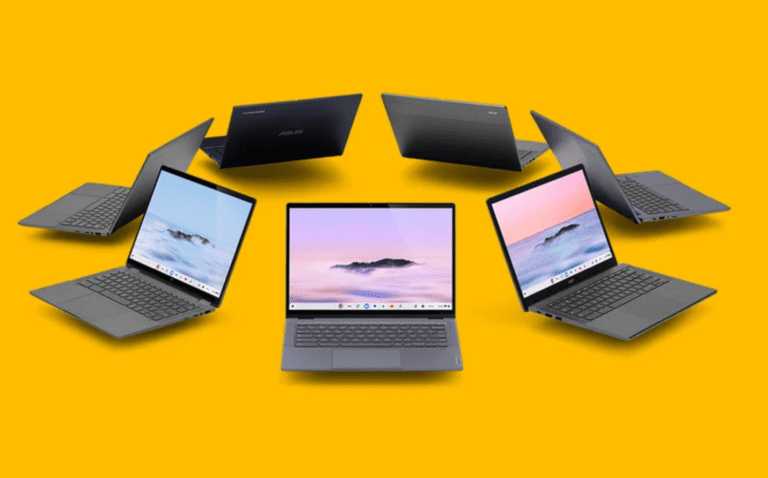With a new series of more powerful Chromebooks, Google is entering a higher segment than the product line has aimed for in the past. Each Chromebook Plus will have at least an Intel i3 or Ryzen 7000 series, 8GB of RAM, a minimum of 128GB of storage and a 1080p IPS display and webcam of the same resolution. Acer, Asus, Lenovo and HP will supply their own variants.
Google is leaning on new AI features to differentiate the Chromebook Plus. Following the lead of the Copilot features within Windows 11, like Microsoft, it is trying to make AI functionality central to the operating system.
Also read: What’s new in ChromeOS 116?
File Sync, for example, is an AI feature that keeps track of which files are most relevant to the user. These are loaded early and provided with up-to-date information. Another AI offering is Magic Eraser, which previously debuted on Google Pixel phones. Users can edit photos and intelligently remove objects from an image, such as a person visible in the background or an object.
AI webcam, AI assistant
Another kind of AI integrated into the new Chromebook Plus is related to the webcam. Although it always delivers at least 1080p resolution, deep learning is trying to capture an even higher-quality image of the user.
In time, a generic AI assistant will appear on ChromeOS, director of product management Omri Amarilio said. “We are building a generative AI agent that understands the context of your screen. For example, if you go to a social media site like X, it will understand that you’re trying to write a short blurb, like a tweet, and help you with that context in mind. And because it also works with all services, it’s always one click away.”
A Copilot for Everyone
In terms of rhetoric, Google’s story is very similar to Microsoft’s these days. The Redmond tech giant is putting a Copilot in everything, from Windows itself to every 365 app under the sun. In addition, it has deployed OpenAI technology to create a “smart” search engine with Bing Chat.
Google is battling Microsoft on all AI fronts. It launched Bard in February, implicitly as an alternative to ChatGPT and, later, to Bing Chat. A few months after that came Search Generative Experience, and it has set up a comprehensive AI ecosystem for cloud customers with Vertex AI.
Google’s AI offensive within ChromeOS should be seen within that context, as part of a larger battle with Microsoft to make AI a universal feature. With the new Chromebook Plus having a concrete product, Google’s ambitions are taking even more shape than before. It will likewise hope to wipe out the reputation of much less powerful Chromebooks as e-waste.
